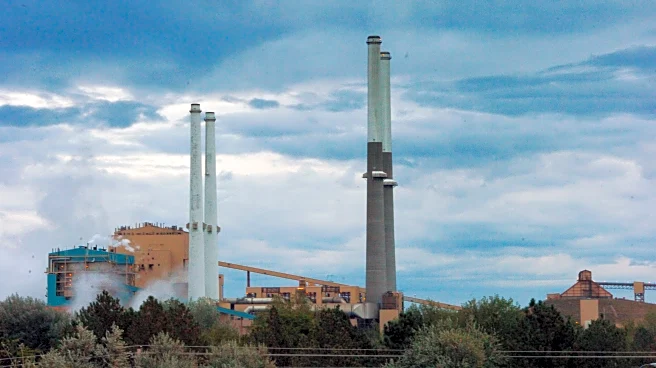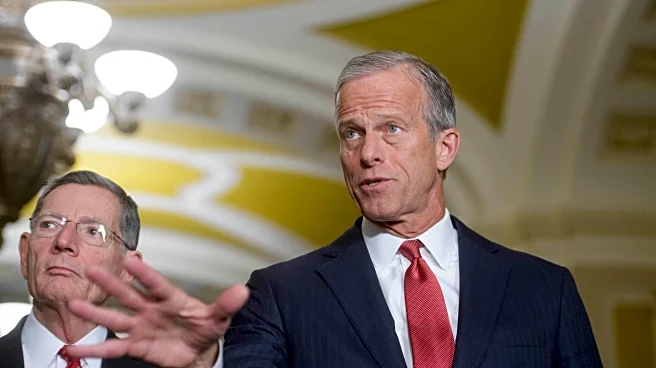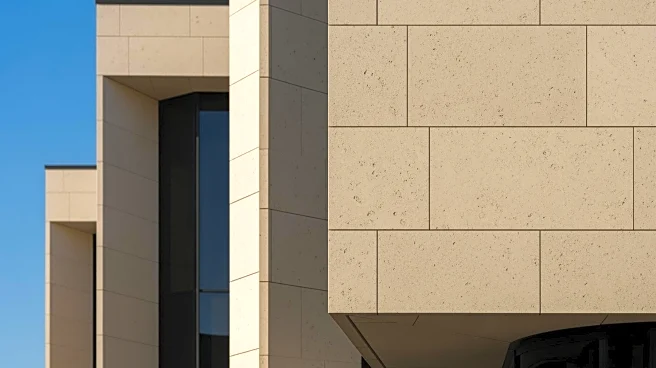What's Happening?
President Trump has proposed the introduction of a 50-year fixed-rate mortgage, a move that has been met with significant criticism. James Fishback, CEO of Azoria, labeled the proposal as a 'disgusting
insult,' arguing it would lead to 'economic genocide against the Gen Z generation.' The proposal comes amid a housing affordability crisis exacerbated by high borrowing costs, which have remained elevated following the Federal Reserve's rate hikes. The average 30-year fixed-rate mortgage currently stands at 6.22 percent, with the median sale price of a U.S. home at $435,331. Critics argue that the 50-year mortgage would increase debt levels and slow home equity buildup, while supporters believe it could lower monthly payments.
Why It's Important?
The proposal is significant as it addresses the ongoing housing affordability crisis in the U.S., where high homeownership costs are preventing many Americans from entering the property market. This has broader societal implications, including falling birth rates and increased financial strain on younger generations. The debate highlights the tension between efforts to make housing more affordable and the potential long-term financial burdens of extended mortgage terms. The proposal has sparked discussions on alternative measures to improve housing affordability, such as deregulation and limiting corporate ownership of residential properties.
What's Next?
The Trump administration has yet to provide details on when the 50-year mortgage policy might be introduced. The proposal has already sparked significant debate among political leaders, financial experts, and the public. Critics, including Fishback, have suggested other measures to address housing affordability, such as banning large corporations from buying residential properties and addressing immigration-related housing occupancy. The administration's next steps will likely involve further discussions and potential modifications to the proposal in response to public and expert feedback.
Beyond the Headlines
The proposal raises ethical and economic questions about the long-term impact of extended mortgage terms on American society. It challenges traditional notions of homeownership and financial independence, potentially altering the landscape of the housing market. The debate also touches on broader issues of economic inequality and the influence of corporate interests in the housing sector. As discussions continue, the proposal may prompt a reevaluation of housing policies and the role of government in ensuring affordable housing for all Americans.











